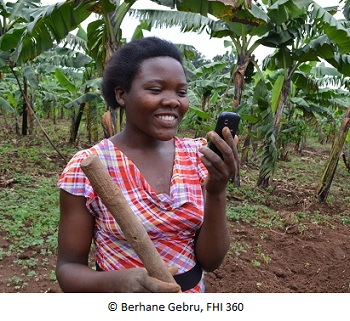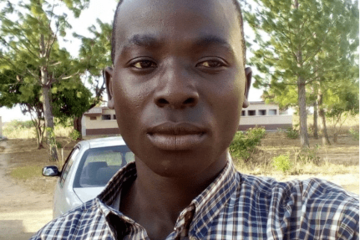
Derek Tobias
(Michigan State University)
Program Manager
Alliance for African Partnership
Education
Energy
Food
Food Safety
Terrorism
Making Food systems Equitable: An African Dialogue on Gender and Food Systems
In countries where women are most marginalized, discriminated under the law and where gendered norms prevent women from owning property and resources, people are also the hungriest. This is because gender equality and food systems are intertwined. However, too often, we only focus on the roles that women play in production, processing, trading of food and in making decisions about consumption and purchase of food at household level. And while this is important, we must also focus on whether the food system as organized is just and equitable and whether it promotes the empowerment and livelihoods and health of women and girls. Stark gender inequalities are both a cause and an outcome of unsustainable food systems, unjust food access, consumption and production. Tackling gender injustice and truly empowering women is not only a fundamental prerequisite for food systems transformation but also a goal.
This dialogue is one in a series of regional dialogues to discuss how we can achieve the triple goal of gender equality, sustainable and healthy food systems. It will bring together scientists, farmers and farmer organizations, policy makers, consumers, private sector and others to discuss and share solutions on guaranteeing land rights for women, rural women’s economic empowerment, women’s voice and decision making in food systems, bridging the gender technology gap and more.
Key outcomes of the dialogue include: (i) a set of solutions and commitments for gender equality in food systems (ii) an African position on what commitments are needed to achieve gender equality in food systems for the UN Food Systems Summit (iii) a community of practice to advance commitments on gender equality in food systems.
To take part in the dialogue, please visit the Summit Dialogues website
By:
Derek Tobias
Monday, Aug 16, 2021
AGRI-FOOD SYSTEMS

No Preview Available
Leave a comment
Uganda – From hate to love: Ochakolong’s agricultural journey
Growing up, Ochakolong Esukaya, a now second-year student of agribusiness management at Busitema University in Soroti, detested farming. To him, farming was a form of punishment. Back in primary school, he explained, farming and especially weeding were activities for latecomers and students who misbehaved.
Having grown up in a farming household, Ochakolong continued to farm. In February and May 2020 during the long rains, he was selected by Acila Enterprises Ltd to be one of two host farmers for a demonstration garden at Busitema University. Acila Enterprises is one of the AFAP-supported hub agro dealers that received funds for demand creation. He was allocated 600 tomato seedlings of the Kilele F1 variety. With the provided seedlings, Ochakolong managed to achieve 95% germination. On a 40m by 20m plot, he grew 1300kg from the garden, which was worth 1.3 million shillings ($ 371). The cost of production on his side was zero apart from his time since the demo plot was fully funded through AFAP funds. As a result of his commitment,
Acila Enterprises allocated him the funds earned to reinvest and also to buy some sachets of Kilele, which he was to sell to neighbouring farmers. Ochakolong sold 109 sachets of Kilele F1, each of which cost 62 000 shillings (approximately $17). Acila paid him a commission 1000 Ugandan shillings ($0.02) per sachet.
To continue reading, please visit the AFAP website
By:
Derek Tobias
Monday, Aug 16, 2021
AGRI-FOOD SYSTEMS


Leave a comment